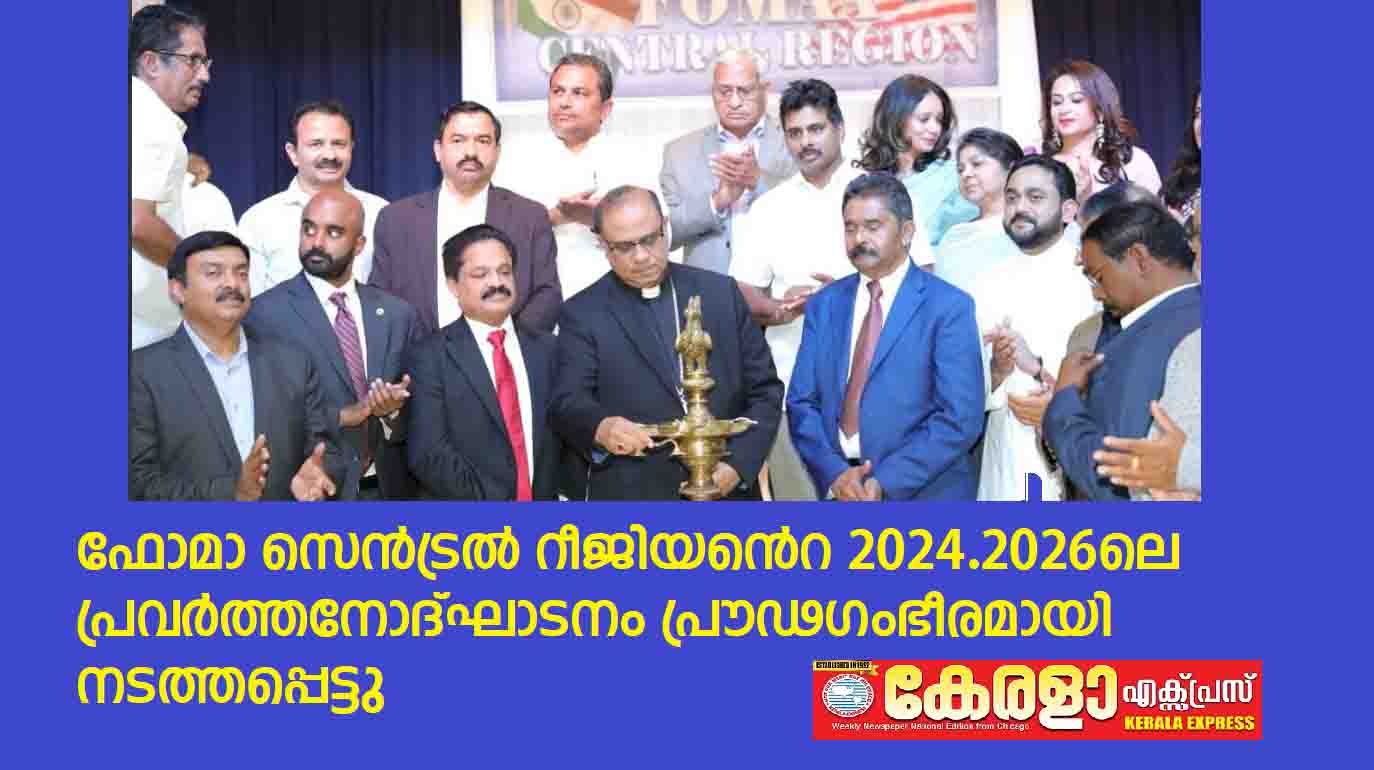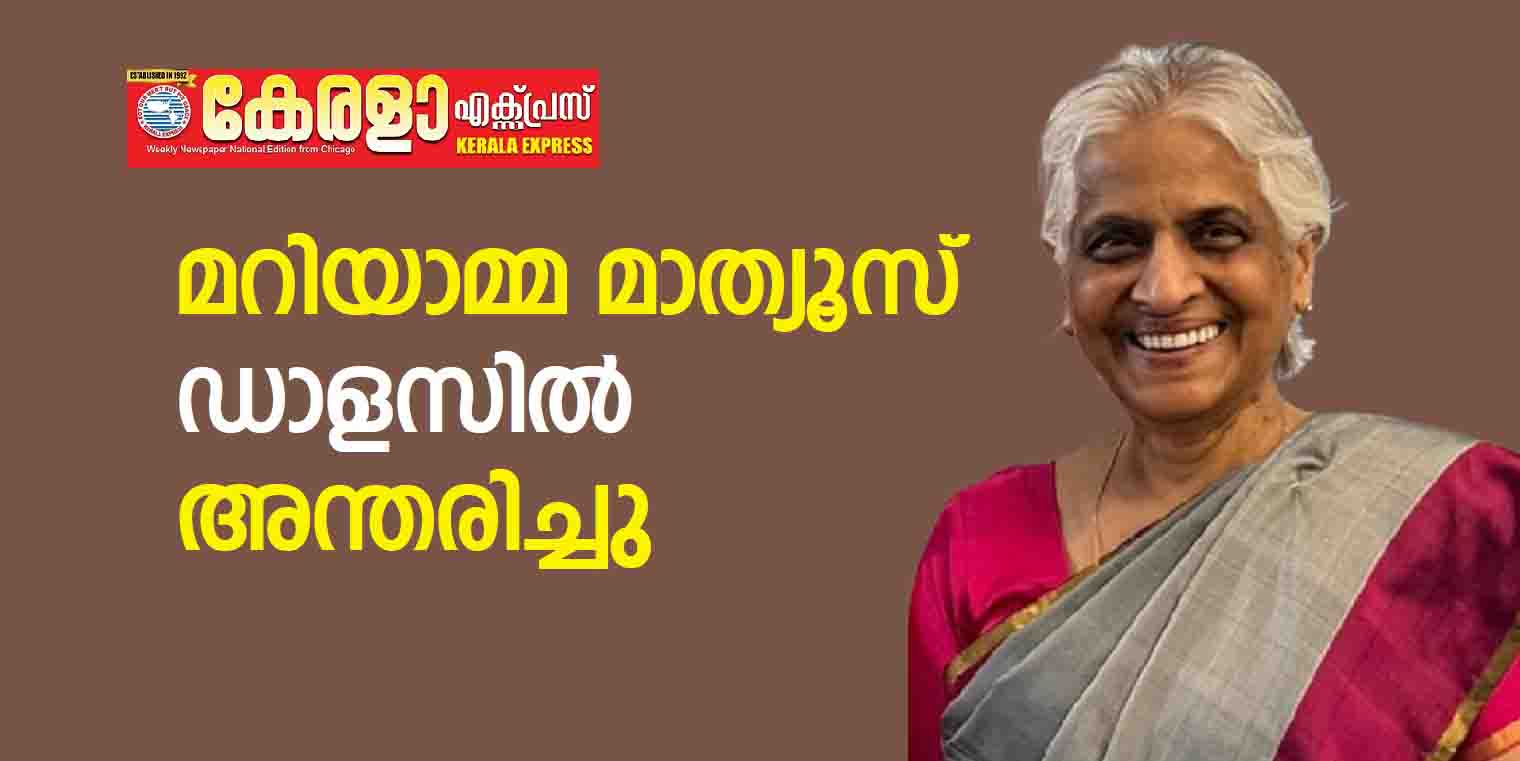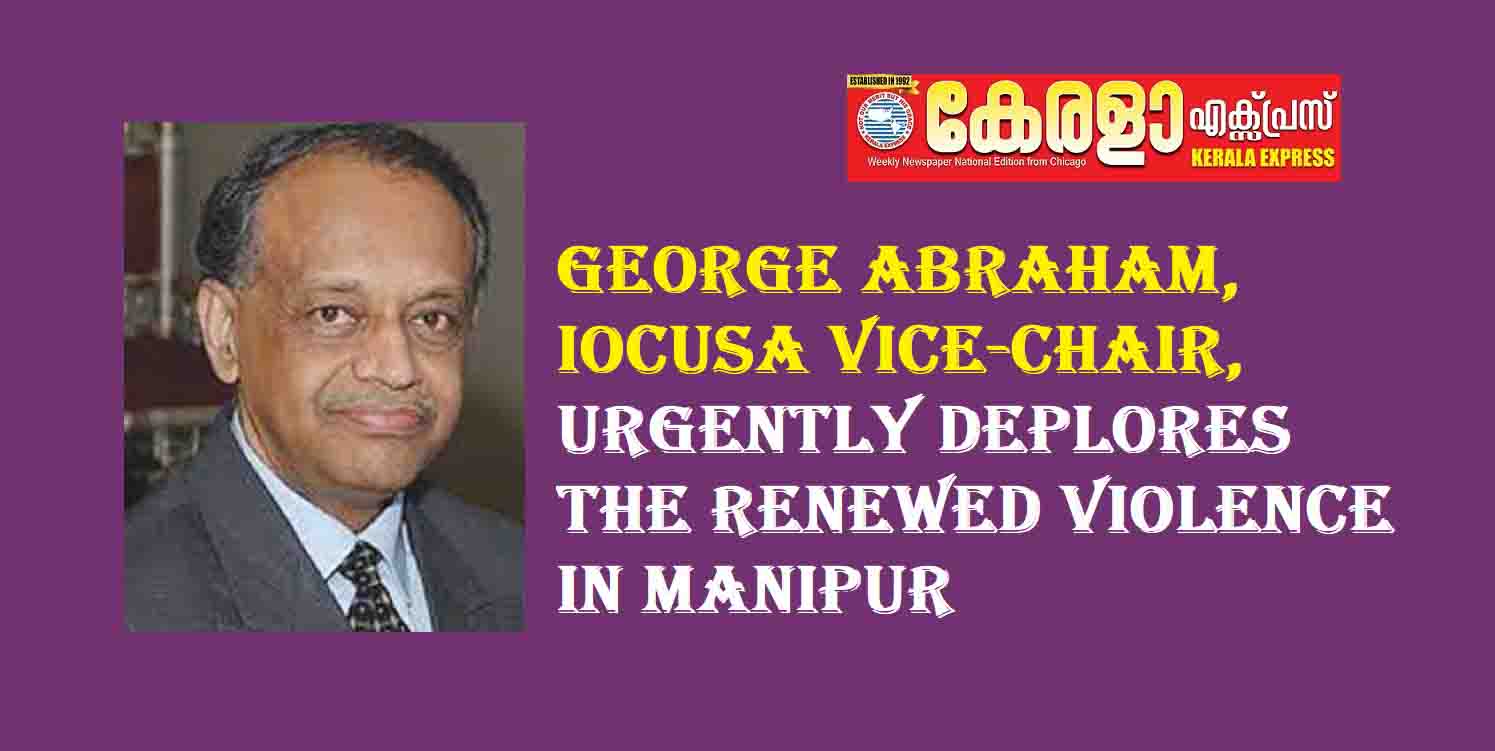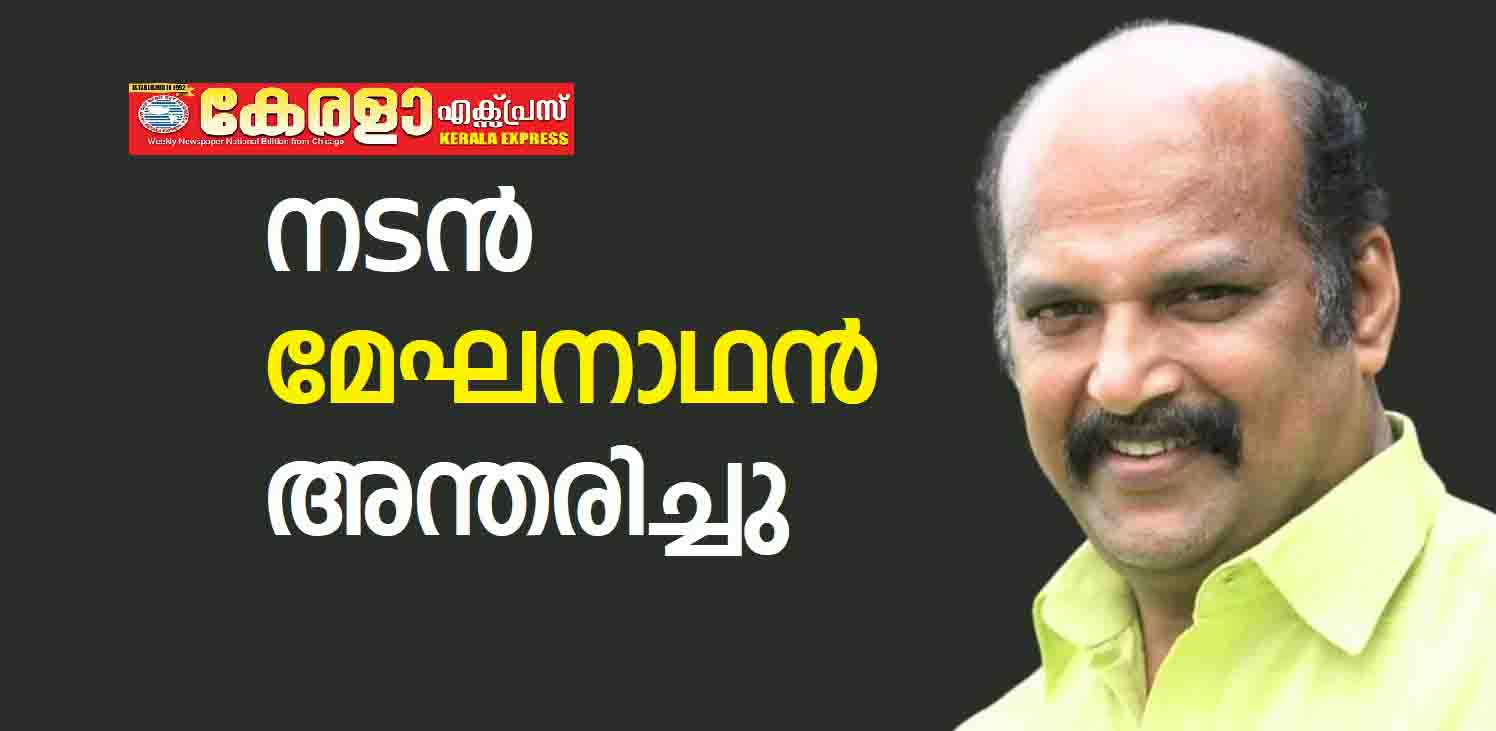The recent loss of Additional District Magistrate K. Naveen Babu has cast a shadow of sorrow over millions of hearts in Kerala, including mine. The circumstances surrounding his death—whether it is deemed a tragic suicide or a potential hit—have evoked profound distress, resonating with countless individuals across our community.
The recent loss of Additional District Magistrate K. Naveen Babu has cast a shadow of sorrow over millions of hearts in Kerala, including mine. The circumstances surrounding his death—whether it is deemed a tragic suicide or a potential hit—have evoked profound distress, resonating with countless individuals across our community.
As we reflect on this heartbreaking event, we cannot overlook the impact on his family. Babu’s widow and their two daughters are now emblematic of courage in the face of devastating grief. They stand as a reminder of the vulnerability of life and the strength it takes to endure such trials.
I felt compelled to share my thoughts in this document in light of this tragedy. This endeavor is a personal reflection and an expression of solidarity with the millions touched by this loss. As we honor this remarkable family, let us come together in empathy and support, fostering a spirit of compassion during such trying times. May we strive to uplift one another in the pursuit of understanding and healing.
Death is a profound and complex concept that transcends the mere biological end of life. Throughout history, diverse cultures have understood and categorized death in numerous ways, reflecting their values, beliefs, and social structures. This article explores the different forms of death, from physical death to more abstract concepts, as practiced from ancient times to the present. It also examines the inspiring narratives of figures such as Aromal Chevakar, who exemplified courage and loyalty in their fight for justice, honor, and service to the boss.
Physical Death: The most universally recognized form of death is physical death, characterized by a natural process—an irreversible cessation of all biological functions in a living organism. Age, disease, stress, and accidents are underlying factors of normal physical death. People mark this event with elaborate burial rituals and ceremonies, deeply influenced by cultural beliefs about the afterlife. For instance, the ancient Egyptians practiced mummification to prepare the dead for the afterlife, while the Greeks had specific rituals to appease the underworld gods.
In modern times, physical death is still accompanied by varying cultural practices, such as funerals and memorial services, which honor the deceased and provide closure for the living. The significance placed on these rituals may vary based on cultural beliefs and traditions, but what remains constant is the importance of commemorating life in universally recognizing physical death.
Civil Death: Civil death refers to the loss of legal and social rights that individuals may experience due to punishment, exile, or other societal regulations. In ancient Rome, civil death was often imposed on criminals, stripping them of their citizenship and legal recognition while they remained physically alive. This death reflected societal attempts to maintain order and comply with established laws.
In contemporary societies, civil death can manifest through excommunication or disenfranchisement, cutting individuals off from voting rights and family support. This highlights the power of community and legal structures in determining an individual's social standing.
Social Death: Social death occurs when individuals become isolated or ostracized from their communities. This form of death has significant psychological and emotional implications, as it can lead to profound feelings of loneliness and despair. Throughout history, individuals marginalized due to their choices or identities—such as those labeled as outcasts or engaging in disliked professions—have experienced social death.
In some cultures, practices like shunning or banishment enforce social norms. These practices often target the vulnerable or less powerful, leading to feelings of loss and identity crisis among individuals.
പടിയടച്ചു പിണ്ഡം വക്കുക: കുലത്തിനോ വംശത്തിനോ ചേരാത്ത പ്രവൃത്തിമൂലം പുറന്തള്ളപ്പെട്ട സ്ഥിതിയെ ആണ് ഭ്രഷ്ട് എന്നു വിളിക്കുന്നത് . പണ്ട് കാലത്ത് ബ്രാഹ്മണ സമുദായങ്ങളിൽ കണ്ടു വന്നിരുന്ന ഈ പ്രവൃത്തിയെ ഭ്രഷ്ട് കല്പിക്കുക അഥവാ പടിയടച്ചു പിണ്ഡം വക്കുക എന്നും പറഞ്ഞിരുന്നു. ഒരു കുടുംബത്തിനുവേണ്ടി ഒരു വ്യക്തിയെ ഒഴിവാക്കുക എന്നതാണ് ഈ ആചാരത്തിന്റെ തത്വം. ജ്ഞാതിശാസ്യം എന്നും അടിയപ്പെടുന്നു. (ജ്ഞാതി-ബന്ധു)ബന്ധുക്കളിൽ നിന്നുള്ള ശിക്ഷ എന്നർത്ഥം.
കുടുംബ മഹിമയ്ക്ക് വിരുദ്ധമായി പെരുമാറുന്ന വ്യക്തിയെ കുടുംബത്തിൽ നിന്നും എന്നന്നേക്കുമായി ഒഴിവാക്കുന്ന പ്രക്രിയയയാണിത്. ജീവിച്ചിരിക്കുമ്പോൾ തന്നെ മരണാനന്തര ക്രിയകൾ ചെയ്ത് ഒഴിവാക്കുക എന്ന അർത്ഥവും ഉണ്ട്. Thanks to my friend, Anil Pennukkara for this Malayalam note.
Cultural Death: Cultural death is the gradual disappearance of cultural practices, languages, and traditions due to external pressures such as globalization and colonization. This form of death affects entire communities and generations, resulting in the loss of unique identities and heritage.
Historically, colonization has led to cultural death as Indigenous practices and languages were suppressed. In modern times, the spread of dominant global cultures threatens the survival of many minority cultures worldwide. The erosion of cultural identity affects not just individuals but entire groups and societies, illustrating a collective form of death.
Metaphorical and Spiritual Death: In literary and psychological contexts, metaphorical death refers to the end of significant phases in life, such as relationships or personal identities. This form of death signifies transformation and change rather than a physical end. Individuals experiencing significant life changes may describe these transitions as a kind of death, marking the end of one chapter and the beginning of another.
Spiritual death relates to the loss of connection with one's beliefs or purpose. In various religious frameworks, spiritual death can occur when individuals feel abandoned by divine grace or cut off from their spiritual community. It reflects people's inner struggles in reconciling their beliefs with individual experiences.
Brain Death and Ecological Death: In medical terms, brain death is a legal definition indicating the complete and irreversible loss of brain function. This distinction raises ethical questions increasingly relevant in modern healthcare, particularly regarding organ donation and end-of-life decisions.
Ecological death refers to the extinction of species or destruction of ecosystems. As human activity threatens biodiversity, this form of death emphasizes the need for conservation and sustainable practices. The loss of life extends beyond humans to the delicate balance of all living organisms on Earth.
Judicial Death and Gang Violence: Judicial death typically refers to execution, a state-imposed penalty on individuals convicted of serious crimes. Historically, states have used various methods for capital punishment, reflecting contemporary views and values. In contrast, similar outcomes may arise from premeditated murders known as "contract killings" or "hits." These acts, conducted to silence witnesses or protect illicit operations, represent lawlessness and disregard for life, in stark contrast to state-sanctioned executions.
The various forms of death—physical, civil, social, or symbolic—illustrate the complexities of human existence across cultures and periods. From the marginalized to the powerful, these practices reflect societal values, fears, and traditions that shape our understanding of life and death.

Mani Skaria, Ph.D.





















